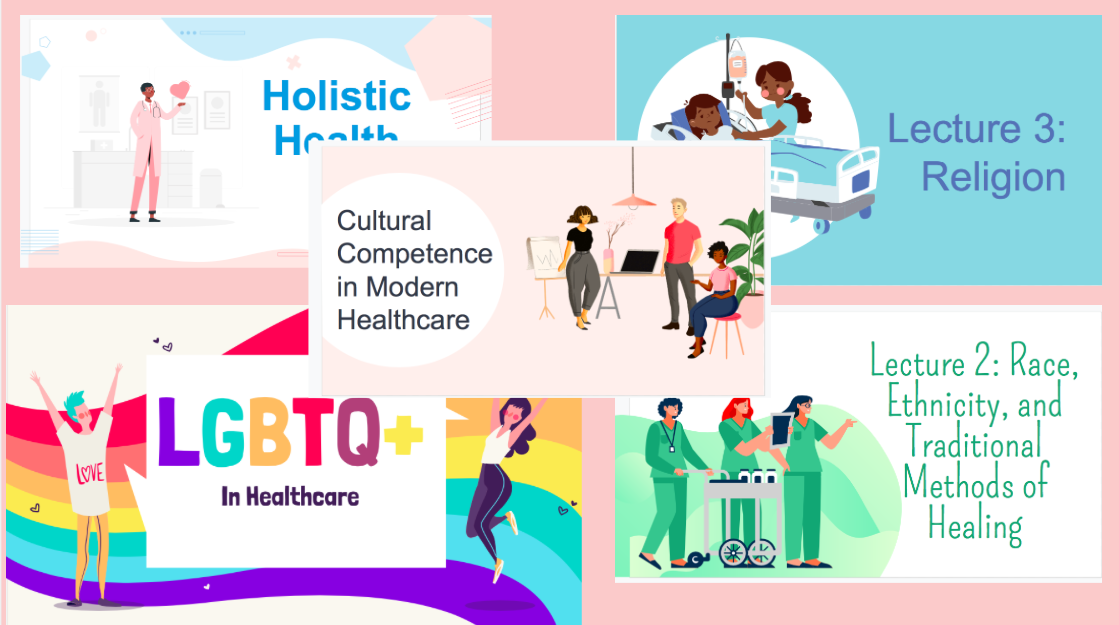
With the guidance of Dr. Janet Hankin, we were able to conduct the Cultural Competence In Modern Healthcare workshop in a virtual setting. This workshop aims to expand the mindset of future healthcare professionals to include the needs of a diverse population.
Lecture 1: Foundations of Cultural Competence
Think about what health means to you. Do you attribute the definition to a state of body or state of mind? Or do you define it with technical terms? Lecture 1 will encourage students to explore their own beliefs regarding health, illness, race, ethnicity, and religion before aiming to understand the beliefs of others. The first lecture of this workshop will provide an overview of the journey students will undertake while educating them about the prevalence of bias and discrimination in healthcare.
Lecture 2: Race, Ethnicity, and Traditional Methods of Healing
A homeless man lives on the cold, windy streets of Baltimore. He has been suffering from pneumonia for the past three days, sleeping in the bus stands. He visits the clinic in his area and is prescribed medicines for the next few days. Unfortunately, he doesn’t have health insurance or money to pay for his prescription. This is a hypothetical situation, but it is a reality that people face. Some of us are fortunate enough to not have to worry about finances and other factors that affect our healthcare experiences; however, there are many who face situations similar to this. Lecture 2 aims to educate future healthcare professionals about the differences in circumstances their patients may be in, so they can provide the best possible healthcare that is tailored to the patient’s needs.
Lecture 3: Religion
In a country like America where people come from a variety of backgrounds, it is the responsibility of the healthcare provider to be aware of the various beliefs many have. Lecture 3 encourages students to have an open mind when treating patients who might use traditional methods of healing in conjunction to allopathic methods. Although there are numerous traditional methods of healing throughout the world, students will be focusing on four cultures and their respective methods of healing in this unit. It is important to recognize these traditional methods in order to better understand the patient’s beliefs and improve the patient-provider relationship.
Written and developed by Sreenidhi Saripalli and Anjani Malli Reddi
